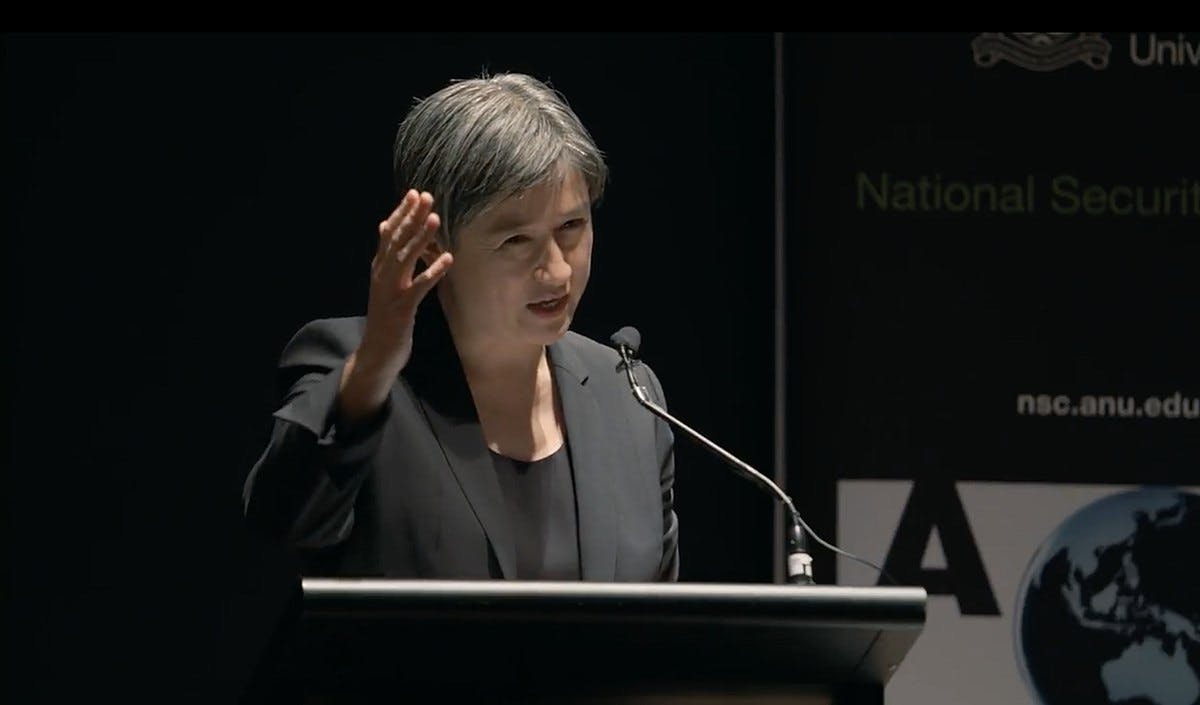Published: 3 June 2022
Last updated: 4 March 2024
Melissa Castan talks to Dash Lawrence about her father’s legacy in the era of the Uluru Statement from the Heart
Today, 3 June marks 30 years since the High Court of Australia ruled in favour of Torres Strait Islander Eddie Mabo; a ruling that would end the legal doctrine of terra nullis – that Australia was empty before its European colonisation – and usher in a new era of rights for Indigenous Australians.
The man who spearheaded Mabo’s courageous bid for land rights, was Melbourne Jewish barrister Ron Castan QC.
Castan spent decades doggedly pursuing land rights cases, usually acting in a pro-bono capacity. His commitment to Indigenous legal rights was informed by an acute awareness of the violence and dispossession meted out to Jewish people, culminating in the Holocaust.
He died unexpectedly, in 1999, at the age of 59. But his daughter Melissa continues her father’s legacy, as a law academic and Director of Monash University’s Castan Centre for Human Rights Law.
Speaking to The Jewish Independent this week, Melissa Castan said this year’s anniversary marks an important milestone.
“The 30-year anniversary of the Mabo ruling represents a whole passage of a generation of First Nations people, that have now grown up and come of age in the age of Mabo.
“Since that decision, there have been a series of important developments in Indigenous rights.
"The Uluru Statement from the Heart is an invitation from First Nations people to all Australians, to embrace the full potential of what the Mabo case, both legally and culturally offered us."
“However, progress is still frustratingly slow. There’s still so much work to do and to achieve for genuine justice for First Nations people.”
In 1982, it took Eddie Mabo, an articulate and politicised leader of the Meriam people (in Queensland’s far northern Torres Strait Island Region), to seek recognition that he and his people were the traditional owners of their land – not the State of Queensland.
Mabo and his co-litigants, hoped that the case for their land in Murray Island would lead to a broader recognition that Indigenous Australians had a legal right to ownership over their traditional lands. But it would take nearly a decade, many setbacks and dispiriting delays, before Australia’s High Court ruled in Mabo’s favour.
As a law student in 1992, Castan was there watching it all, providing para-legal assistance to her father and his counsel-assisting, barrister Brian Keon-Cohen and solicitor Greg McIntyre.
The memory of the verdict day, and the cast of characters that contributed to the Mabo case, is still resonant.
![Image of his island drawn by Edie Mabo ((Edward Koiki Mabo/Copyright Agency [2020]; National Library of Australia).](/_next/image?url=https%3A%2F%2Fjewishindependent.yourcreative.com.au%2Fwp-content%2Fuploads%2F2022%2F06%2FMaboDecision_map.jpg&w=3840&q=75)
“Every year on Mabo Day we, as a family, remember my father and his role in the case.
“But we also remember all the other people involved: Eddie Mabo, of course, but also his co-litigants Father Dave Passi and James Rice, as well as their families and community who were all invested in this process.”
“Eddie was a character. He was charismatic, extroverted. He was an agitator, and he was really driven. That’s why he brought on the case and stuck by it.
“But he didn’t want to do it alone, he wanted to bring the Murray Islanders with him.”
Mabo, like Ron Castan, died prematurely at the age of 55, only a few months before the historic ruling in 1992.
Mabo Day, on 3 June, is an official holiday in the Torres Strait Islands.
“We’ve stayed in touch with Brian Keon-Cohen and Greg McIntyre. But we haven’t had the opportunity to connect with the people of Murray Island in a long time.
“Yet in many ways those people and their contributions still seem very live, very immediate to me.”
Castan is enthusiastic about incoming Prime Minister Anthony Albanese’s declaration of support for the Uluru Statement from the Heart.
“The Uluru Statement from the Heart is an invitation from First Nations people to all Australians, to embrace the full potential of what the Mabo case, both legally and culturally offered us.
“We’re now at a point where Australia is more than ready to embrace this opportunity to re-establish proper legal relations with First Nations – as we should have done when Cook and Phillip arrived.”
To mark Mabo Day, Melissa Castan will be in an online conversation with The Jewish Independent’s Executive Director Dashiel Lawrence at 12pm today. Registration is free via the Jewish Museum of Australia’s website.
Photo: Solicitor Greg McIntyre, barrister Ron Castan, Eddie Mabo and barrister Bryan Keon-Cohen at the High Court of Australia in 1991 (supplied)




